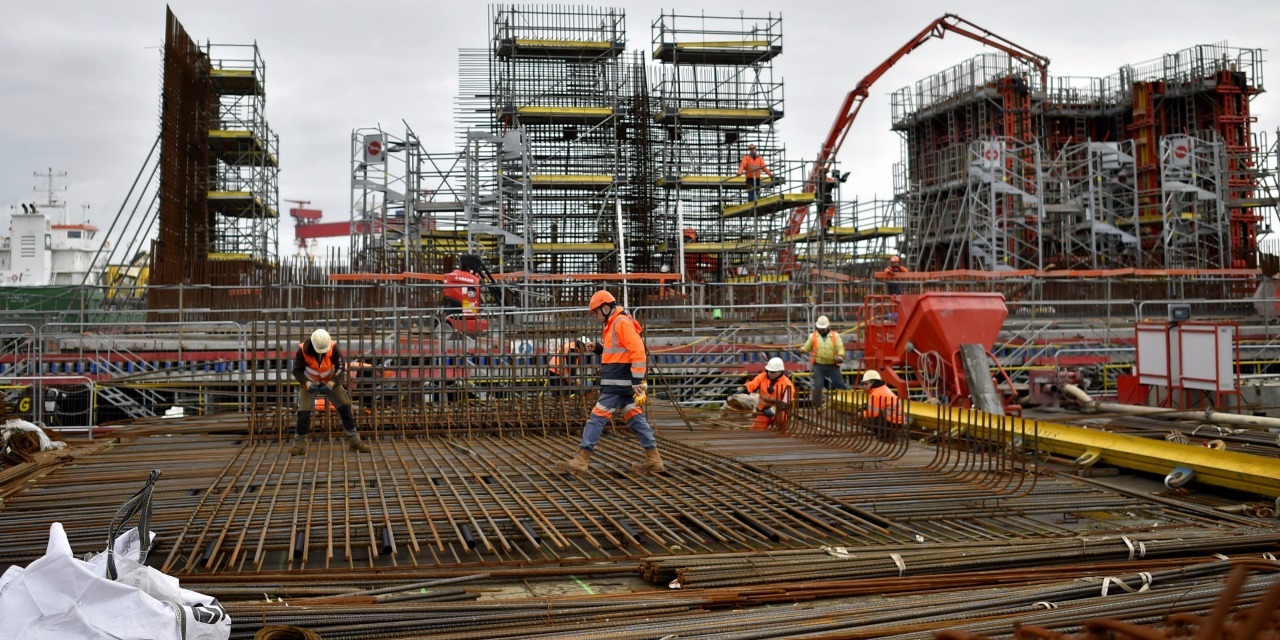According to the Banque de France, gross domestic product (GDP) is expected to fall from 9% to 10% for the year 2020, due to the economic crisis of the coronavirus and lockdowns.
By comparison, the drop had been 31% in April, at the time of the first containment.
The reconfinement should cost the French economy 12% of its GDP in November compared to a so-called "normal" activity, according to the Banque de France.
The institution anticipates a drop of 9% to 10% over the whole of 2020. Before the second wave of Covid-19, the Banque de France had predicted in September a drop in gross domestic product (GDP) of 8.7% this year.
Its forecast is now between -9 and -10%, said Monday on RTL François Villeroy de Galhau, the governor of the Bank of France.
>> LIVE -
Coronavirus: follow the evolution of the situation Monday, November 9
For the month of November alone, the reconfinement should cut the French GDP by 12% compared to a so-called "normal" activity, provides the institution, with a plunge in catering, non-food trade and recreational activities.
-20% for accommodation
"The loss of GDP for a typical week of activity (compared to the normal level before the pandemic) would be -12% in November, against -4% in October but -31% in April", ie at the time of the first confinement in France, specifies the Banque de France (BdF) in its monthly economic survey conducted among 8,500 companies and published on Monday.
CORONAVIRUS ESSENTIALS
> Coronavirus: towards an alternation between deconfinement and reconfinement?
> Containment: here are the certificates to download to get around
> When are we in contact?
And other questions that we ask ourselves every day
> Coronavirus: the 5 mistakes not to make with your mask
> Does wearing a mask promote bad breath?
Faced with this new expected plunge of the French economy, all sectors are not housed in the same boat, however, warns the institution, some even risking a fate close to spring confinement.
This is the case for non-food trade, traditional catering and recreational activities, where "the outlook is deteriorating sharply".
Under the effect of the closures of shops on the territory and travel restrictions, catering activities should operate at less than 10% of their normal activity, and less than 20% for accommodation, predicts the Banque de France.
"Overall stable" for industry
These activities are the most affected, ahead of rental (equipment, automobile, etc.) and leisure and personal services (including recreational activities) which will run at less than 60% of their usual activity.
The situation is however less worse for these various activities than in April, when they had operated at less than a third of their cruising speed.
Other sectors, on the other hand, will experience a more moderate decline because travel is more flexible than in the spring and the BdF is seeing an habituation effect.
This is the case for industry, whose activity was "broadly stable" in October.
The building itself returned in October "close to normal".
Finally, business services are broken with teleworking, which is now widely used.

